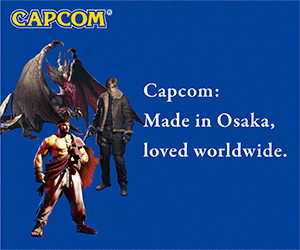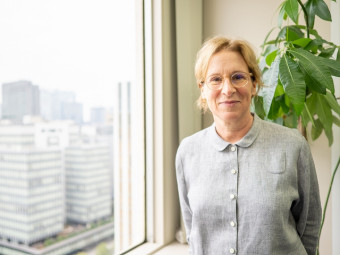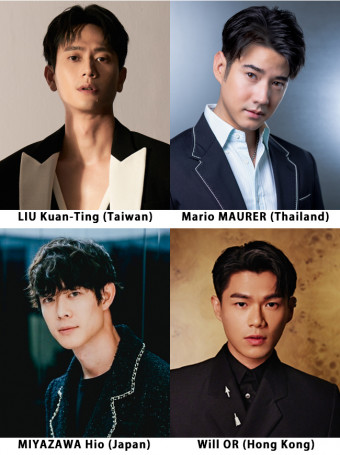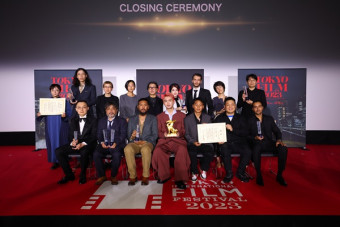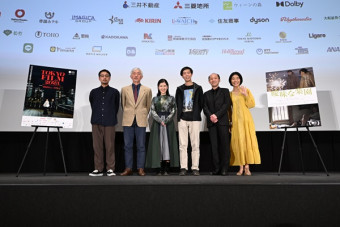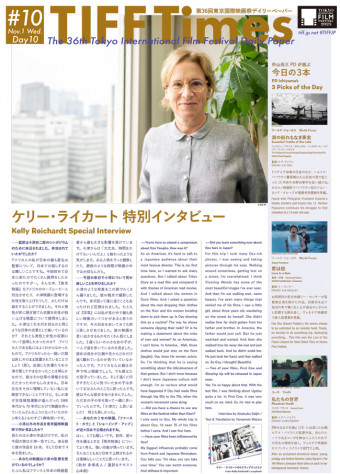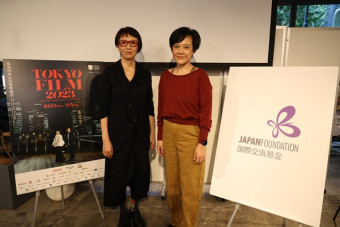
Sheron Dayoc’s short, effective drama The Gospel of the Beast, which had its world premiere in the Competition section of the 36th Tokyo International Film Festival on October 28, endeavors to address the epidemic of violence in the Philippines.
“I was born in the south part of the Philippines, which means I grew up with conflict all around me,” said the director during the post-screening Q&A session. “Violence was a reality to me, but as I acquired a social and political consciousness, I realized I had to do something as a storyteller. In the last 10 years, there has been a growth of violence starting with the ascendance of Former President Duterte, when it became more pervasive. In cinema, we have to address this violence, otherwise people become passive and tolerate it until it becomes part of our cultural identity. We have to have a space to discuss it, because we deserve better. That’s why I did this.”
Dayoc’s purposes are clear in the way he develops his protagonist, a high school student named Mateo (Jansen Magpusao) who initially comes across as a normally adjusted adolescent with a strong bond to his mother and younger siblings. However, he has a problem controlling his anger and when a class rival pushes him too far, he lashes out and inadvertently kills the boy. Though no one suspects him, he seeks the help of his Uncle Berto (Ronnie Lazaro), who always seems to have cash and obviously belongs to some underground organization. Berto takes Mateo under his wing, and the young man descends into the darkness of a violent criminal world.
Moderator and TIFF Programming Director Ichiyama Shozo asked the director if the story is based on anything factual, to which Dayoc replied, “I had a referent whom I interviewed and through him I met other people who belonged to underworld syndicates, and they gave me insight into that world.”
The main thrust of the film is Mateo’s indoctrination into this world, where torture and killing become almost second nature. When he balks at the tasks assigned to him, Berto convinces him to stay by saying that it’s a matter of survival — they’re just getting back at the powerful who look down on “people like us,” meaning the poor and marginalized. At first, Mateo buys this rationale, though it’s clearly a lie. The ultimate boss of Berto’s gang, for example, is a man who dresses in expensive suits and orders competitors eliminated before his golf dates.
The authorities actually have the final say as to who lives and who dies, as exemplified by a TV clip of prison convicts killed in a riot. As for the boy Mateo killed, the police eventually arrest someone else because they have to demonstrate that they’re doing their job. “Criminals are victims, too,” said Dayoc, and justice is “subjective” for those who live at the bottom.
In response to a question about the rich-poor dynamic he tried to convey, the director said, “That’s the perspective of these criminals. They see themselves as the victims of the powerful, and that justifies their violence. In the Philippines there is a huge disparity between rich and poor, which means the people in power define what’s right and what’s wrong.”
Eventually, Mateo sees through his uncle’s justifications and grasps the hypocrisy behind his gang’s bloody actions. His self-hatred curdles into an anti-religious impulse against the Catholic Church that holds so much sway over Philippine society. “The government is greatly influenced by the Church,” said Dayoc. “For instance, divorce is not legal in our country. It’s an integral part of our culture.” Therefore, Mateo’s disillusionment is designed to have a powerful effect on the viewer.
The audience seemed quite taken with the actor who played Mateo, Jansen Magpusao, who joined his director at the Q&A session. The actor impressively embodies the hopes and fears of an average teenager, and watching him turn into a beast is riveting if repulsive. As it happens, he was studying architecture when the director chose him as his lead. “But this is my second full-length feature,” he told the audience. “My first was four years ago. It was called John Denver Trending,” a title that no one seemed familiar with. In it, Magpusao plays the title character (named after the famous American folk singer because his mother was a fan), also a high school student, who becomes locally famous when a video of him attacking a classmate goes viral.
Is Mateo an example of typecasting? “My priority was the script, so I needed a particular actor,” said Dayoc. “We saw many during the auditions, but we required something special, and he showed that in his first film.”
Q&A Session: Competition
The Gospel of the Beast
Guests: Sheron Dayoc (Director/Screenplay/Producer/Executive Producer), Jansen Magpusao (Actor)













